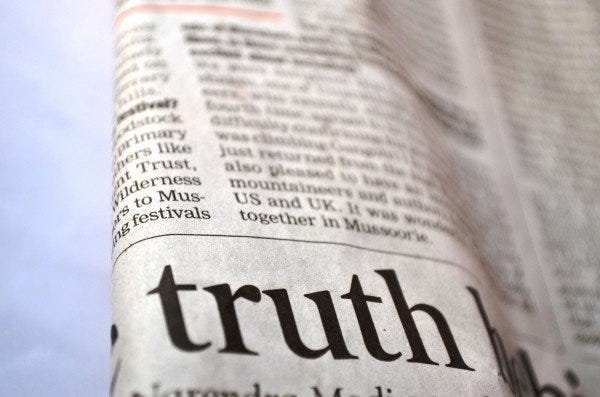Some say that psychopaths “have no conscience,” because they lack sympathy for their victims. However, this confuses the conscience—a faculty of moral judgment—with the feelings that normally accompany its exercise. Our conscience may tell us an action is right or wrong even if we have no feelings or directly contrary feelings. Emotionally, I may be inclined to hide from a particularly needy student, but my conscience forbids that selfish act. Like all human faculties, the conscience is fallible. Yet it is precisely because of this that we should be reluctant to overrule the conscience of others. Sometimes we are sure of our conscience (e.g., human trafficking is an abomination), but in many other cases we cannot claim such certainty, and we all know how terrible it is to be required to do something we judge to be profoundly wrong.
Like all freedoms, the freedom of conscience has its limits: we cannot allow a zealous disciple of the Aztec religion to rip the living heart out of another human being! But so long as the conscience is not the source of clear and avoidable harms, we have good reasons to protect its free exercise. First, a free conscience is an important expression of human dignity. Second, the unfettered pursuit of truth presupposes freedom of conscience. Third, freedom of conscience is foundational to religious liberty.
Dignity
While the term ‘dignity’ has several meanings[1], the one enshrined in the Universal Declaration of Human Rights (1948) is that all human beings have inherent worth. Immanuel Kant argued that humans have such worth because they are capable of freely following the moral law.[2] However, when we try to compel another person to do something against their considered moral judgment, we treat them as a mere thing, and we violate their conscience. If I wish to scale a wall in order to rob a bank, it is one thing for me to use a ladder, quite another for me to make you help me to do so. By overriding your conscience with my own, and treating you as mere thing, I am profoundly violating your dignity.
Today, we are seeing a stunning disregard for the connection between conscience and dignity. There is a trend for large sporting organizations and companies to project a “corporate conscience” by favoring various social justice movements. Yet there is no such thing as a corporate conscience. In reality, some powerful people are overriding the conscience of the many athletes, employees, fans, and customers that happen to disagree. This profoundly disrespects the dignity of these dissenters, by making a choice for them against their conscientious objection.
Again, consider those biological men that think their true gender is female. Suppose one grants that these individuals have a right of conscience to believe this, and that it would violate their dignity to require them to self-describe using male terms. It does not follow that other people should be required to use female terms to describe these individuals if, in good conscience, they do not believe they are accurate: this would be a violation of their dignity.
Truth
If we care about the unfettered pursuit of truth, we should not silence those whose conscience disagrees with our own. As John Stuart Mill argued, “All silencing of discussion is an assumption of infallibility,” and this assumption is indefensible, “every age having held many opinions which subsequent ages have deemed not only false but absurd”.[3] For all his greatness as a philosopher, Aristotle’s conscience did not tell him that slavery was wrong, and William Wilberforce struggled to convince his countrymen that it was. If we had limited our views to those held by a great authority, or by a majority, and ignored conscientious dissent, we might never have recognized that slavery is wrong.
In the end we have a choice. We can humbly recognize that truth is superior to human will, and allow the evidence to decide between competing views. Or we can proudly assert that truth is inferior to human will, which means in practice that ‘truth’ is redefined to mean whatever the most powerful people say is true. George Orwell brilliantly exposed the absurdity and dehumanizing consequences of the latter view. O’Brien confronts the dissident Winston Smith:
‘Whatever the Party holds to be truth is truth…. Do you remember…writing in your diary, ‘Freedom is the freedom to say that two plus two make four’?
....
‘How many fingers am I holding up, Winston?’
‘Four.’
‘And if the party says that it is not four but five—then how many?’[4]
On this view, enslavement to ideology overrules both the individual conscience and factual reality: “imagine a boot stamping on the human face—forever.”[5]
Religious Liberty
Christians have special reasons to be concerned about freedom of conscience. They do not believe that faith can be coerced: it is a gift of grace that a person may reject. And their faith (like that of other religions) is one that must be lived out. Article 18 of the Universal Declaration of Human Rights rightly emphasizes the connection between freedom of conscience and freedom to manifest one’s faith:
Everyone has the right to freedom of thought, conscience and religion; this right includes freedom to change his religion or belief, and freedom, either alone or in community with others and in public or private, to manifest his religion or belief in teaching, practice, worship and observance.
Religious liberty is clearly under attack, with increasing calls for churches, Christian schools, and other ministries to accommodate secular ideologies. It is time for Christians to defend their rights of conscience and the free exercise of religion guaranteed by the First Amendment. While Christians should generally obey the governing authorities (Rom. 13), when those authorities attempt to silence the Gospel of Jesus Christ, “We must obey God rather than men” (Acts 5:29).
Notes
[1]Michael Rosen, Dignity: Its History and Meaning (Cambridge, MA: Harvard University Press, 2012), 114.
[2]Immanuel Kant, Groundwork of the Metaphysics of Morals, revised edition, edited by Mary Gregor and Jens Timmermann (Cambridge: Cambridge University Press, 2012 [1786]), 4.435-4.436.
[3] John Stuart Mill, On Liberty (Indianapolis, IN: Hackett, 1978), 17.
[4]George Orwell, 1984 (New York: Signet Classics, 1950), 249.
[5]Orwell, 1984, 267.
— Angus Menuge is chair of the philosophy department and co-chair of the classical education program at Concordia University Wisconsin, and past president of the Evangelical Philosophical Society (2012-2018). He is the author of Agents Under Fire (Rowman and Littlefield, 2004) and co-editor with Jonathan Loose and J. P. Moreland of The Blackwell Companion to Substance Dualism (Blackwell, 2018) and, with Barry W. Bussey, of The Inherence of Human Dignity, Volume I and Volume II (Anthem Press, 2021).
Image by Joshua Woroniecki from Pixabay
News
How Not to Debate Ideas in the Public Square
Searching For the Soul of the University: An Interview with George M. Marsden
European Evangelical Alliance demands Finland respect MP’s religious freedom rights
Just a Bill: Religious Freedom Consensus Rarely Voted into Law
Video: The Book of Exodus & Apologetics (w/ Dr. W. Ross Blackburn)
Video: The Book That Made Our World: How the Bible Created the Soul of Western Civilization, Part 1, Part 2
Video: 19 Moral Arguments for God, from C. S. Lewis to Robert Adams
Video: Christianity and Science: Friends or Foes?
(*The views expressed in the articles and media linked to do not necessarily represent the views of the editors of The Worldview Bulletin.)
A Master Class in Christian Worldview
Learn from world-class Christian apologists, scholars, and philosophers, and support our work of making these resources available, all for only $2.50 per month. There’s no obligation and you can easily cancel at anytime. Be equipped, informed, and encouraged!
“The Worldview Bulletin is a must-have resource for everyone who’s committed to spreading and defending the faith. It’s timely, always relevant, frequently eye-opening, and it never fails to encourage, inspire, and equip.”
— Lee Strobel, New York Times bestselling author of more than forty books and founding director of the Lee Strobel Center for Evangelism and Applied Apologetics
“Staffed by a very respected and biblically faithful group of Evangelical scholars, The Worldview Bulletin provides all of us with timely, relevant, and Christian-worldview analysis of, and response to, the tough issues of our day. I love these folks and thank God for their work in this effort.”
— JP Moreland, distinguished professor of philosophy, Talbot School of Theology, Biola University, author of Scientism and Secularism: Learning to Respond to a Dangerous Ideology (Crossway)
Book Deals and Resources
Look here for Faithlife’s free eBook of the Month, and here for their free audiobook of the month.
Visit here to get the Logos Free Book of the Month. You can download the free version of Logos which will allow you to access the monthly free books. Logos 9 is a great investment, though, and has tons of tools that make Bible study easier and richer. New users can get 50% off of the Logos 9 Fundamentals package, which discounts it to $49.99.
Get a second free book for May here, along with several other discounted titles.
Find current Logos sales in 9 different categories here.
For one more day, save 50% on Bible and Theology Video Courses from Leading Christian Scholars (Zondervan Academic).
Fortress Press Spring eBook Sale: Over 1,000 titles $9.99 or less (this links to their books on Amazon. You can also browse or search their site and then find the titles on Amazon.)
Audiobook: The Rage Against God by Peter Hitchens, $3.99
Audiobook: The Christian in the World by C. S. Lewis, $2.99 (19 of Lewis’s essays on various subjects)
Jesus Now: Unveiling the Present-Day Ministry of Christ by Frank Viola, FREE until 5/17
"Here Are Your Gods": Faithful Discipleship in Idolatrous Times by Christopher J. H. Wright, $4.99
Rebels and Exiles: A Biblical Theology of Sin and Restoration by Matthew S. Harmon, $5.99
Theological Theodicy by Daniel Castelo, $2.99
NIV Biblical Theology Study Bible, $3.99
God Dwells Among Us: Expanding Eden to the Ends of the Earth by G. K. Beale and Mitchell Kim, $4.99
Our Good Crisis: Overcoming Moral Chaos with the Beatitudes by Jonathan K. Dodson, $2.99
Dream with Me: Race, Love, and the Struggle We Must Win by John Perkins, $1.99






A very succinct and trenchant treatment of this strangely neglected subject. Aren't there clear applications to the Corona situation? In many countries, governments do seem to violate their citizens' conscience by imposing restrictions on them that impede them in following their conscience, e.g. as regards the choice for elderly people to rather see their loved ones than be protected from the virus. Since this is such a virulent topic, I wonder why it hasn't been picked up by the Worldview Bulletin Newsletter.
So very good, Angus. Thanks so much for writing!
.